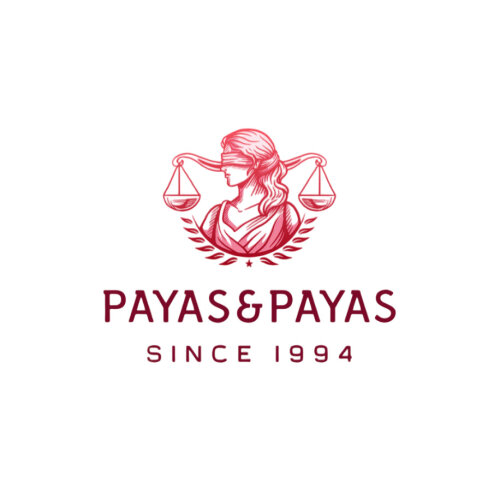Best Financial Services Regulation Lawyers in Turkey
Share your needs with us, get contacted by law firms.
Free. Takes 2 min.
Or refine your search by selecting a city:
List of the best lawyers in Turkey
About Financial Services Regulation Law in Turkey
Financial Services Regulation in Turkey encompasses the legal framework governing the operations, activities, and oversight of financial institutions such as banks, insurance companies, and investment firms. This regulatory landscape is primarily aimed at maintaining stability, protecting consumers, and ensuring fairness in the financial marketplace. Key legislative authorities in Turkey include the Banking Regulation and Supervision Agency (BRSA), the Capital Markets Board (CMB), and the Central Bank of the Republic of Turkey. These institutions play pivotal roles in implementing and enforcing regulations concerning capital adequacy, corporate governance, risk management, and consumer protection.
Why You May Need a Lawyer
Engaging a legal expert in Financial Services Regulation may be essential in various scenarios, including:
- Setting up a financial institution in compliance with Turkish laws.
- Ensuring an investment firm adheres to regulations set by the Capital Markets Board.
- Facing investigations or audits from regulatory authorities like the BRSA.
- Dealing with disputes related to financial products or services.
- Navigating complex transactions or mergers within the financial industry.
- Understanding compliance requirements for cross-border financial transactions.
Local Laws Overview
Turkey's financial services are regulated by several key pieces of legislation and regulatory bodies:
- Banking Law: Governs banking activities, focusing on licensing, operational requirements, and supervision.
- Capital Market Law: Regulates the securities market, ensuring transparency and the protection of investors.
- Payment Systems Law: Oversees the regulation of payment and securities settlement systems, payment services, and electronic money institutions.
- Insurance Law: Establishes rules concerning the operation and governance of insurance companies.
- The BRSA and CMB are instrumental in ensuring adherence to these laws, focusing on mitigating risks, enforcing compliance, and offering protections against malpractices.
Frequently Asked Questions
1. What is the role of the Banking Regulation and Supervision Agency (BRSA) in Turkey?
The BRSA oversees the banking sector in Turkey, ensuring banks operate safely, soundly, and in compliance with relevant laws to maintain financial stability and protect consumers.
2. How are investment firms regulated in Turkey?
Investment firms in Turkey are regulated by the Capital Markets Board (CMB), which enforces laws to protect investors and maintain market integrity.
3. What steps are required to establish a bank in Turkey?
Establishing a bank in Turkey requires obtaining a license from the BRSA, complying with capital requirements, and meeting rigorous governance and management standards.
4. Can foreign banks open branches in Turkey?
Yes, foreign banks can establish branches in Turkey, subject to approval and licensing by the BRSA, ensuring compliance with local banking regulations.
5. What is required for compliance with Turkey's anti-money laundering (AML) laws?
Financial institutions must implement robust internal controls, conduct customer due diligence, and report suspicious transactions to the relevant authorities to comply with AML laws.
6. How are consumer rights protected in financial services?
Consumer rights are protected under various laws and regulations that promote fair practices, transparency, and provide mechanisms for resolving disputes in the financial sector.
7. Are electronic payment services regulated in Turkey?
Yes, electronic payment services are regulated under the Payment Systems Law, ensuring systems are secure, efficient, and transparent for consumers and businesses.
8. What is the regulatory approach to fintech innovations in Turkey?
The regulatory approach to fintech in Turkey is evolving to facilitate innovation while ensuring consumer protection and financial stability, with a focus on encouraging technological advancements.
9. How does Turkey address financial fraud and market misconduct?
Laws such as the Capital Market Law empower the CMB to investigate and penalize market misconduct, including insider trading and fraud, ensuring a fair and transparent market.
10. What are the consequences of non-compliance with financial regulations?
Consequences can include fines, revocation of operating licenses, and legal action, depending on the severity and nature of the non-compliance.
Additional Resources
To further understand Financial Services Regulation in Turkey, consider consulting the following resources:
- Banking Regulation and Supervision Agency (BRSA)
- Capital Markets Board (CMB)
- Central Bank of the Republic of Turkey
- The Union of Chambers and Commodity Exchanges of Turkey (TOBB)
- Consumer Protection Association Turkey
Next Steps
If you require legal assistance in Financial Services Regulation in Turkey, consider taking the following steps:
- Identify the specific regulatory issue or need.
- Research and select a lawyer or legal firm with expertise in Turkish Financial Services Regulation.
- Prepare and organize all relevant documentation and information ahead of your consultation.
- Schedule a consultation to discuss your needs, concerns, and the scope of legal assistance required.
- Establish a clear understanding of fees, processes, and expectations with your legal advisor.
Lawzana helps you find the best lawyers and law firms in Turkey through a curated and pre-screened list of qualified legal professionals. Our platform offers rankings and detailed profiles of attorneys and law firms, allowing you to compare based on practice areas, including Financial Services Regulation, experience, and client feedback.
Each profile includes a description of the firm's areas of practice, client reviews, team members and partners, year of establishment, spoken languages, office locations, contact information, social media presence, and any published articles or resources. Most firms on our platform speak English and are experienced in both local and international legal matters.
Get a quote from top-rated law firms in Turkey — quickly, securely, and without unnecessary hassle.
Disclaimer:
The information provided on this page is for general informational purposes only and does not constitute legal advice. While we strive to ensure the accuracy and relevance of the content, legal information may change over time, and interpretations of the law can vary. You should always consult with a qualified legal professional for advice specific to your situation.
We disclaim all liability for actions taken or not taken based on the content of this page. If you believe any information is incorrect or outdated, please contact us, and we will review and update it where appropriate.
Browse financial services regulation law firms by city in Turkey
Refine your search by selecting a city.
















